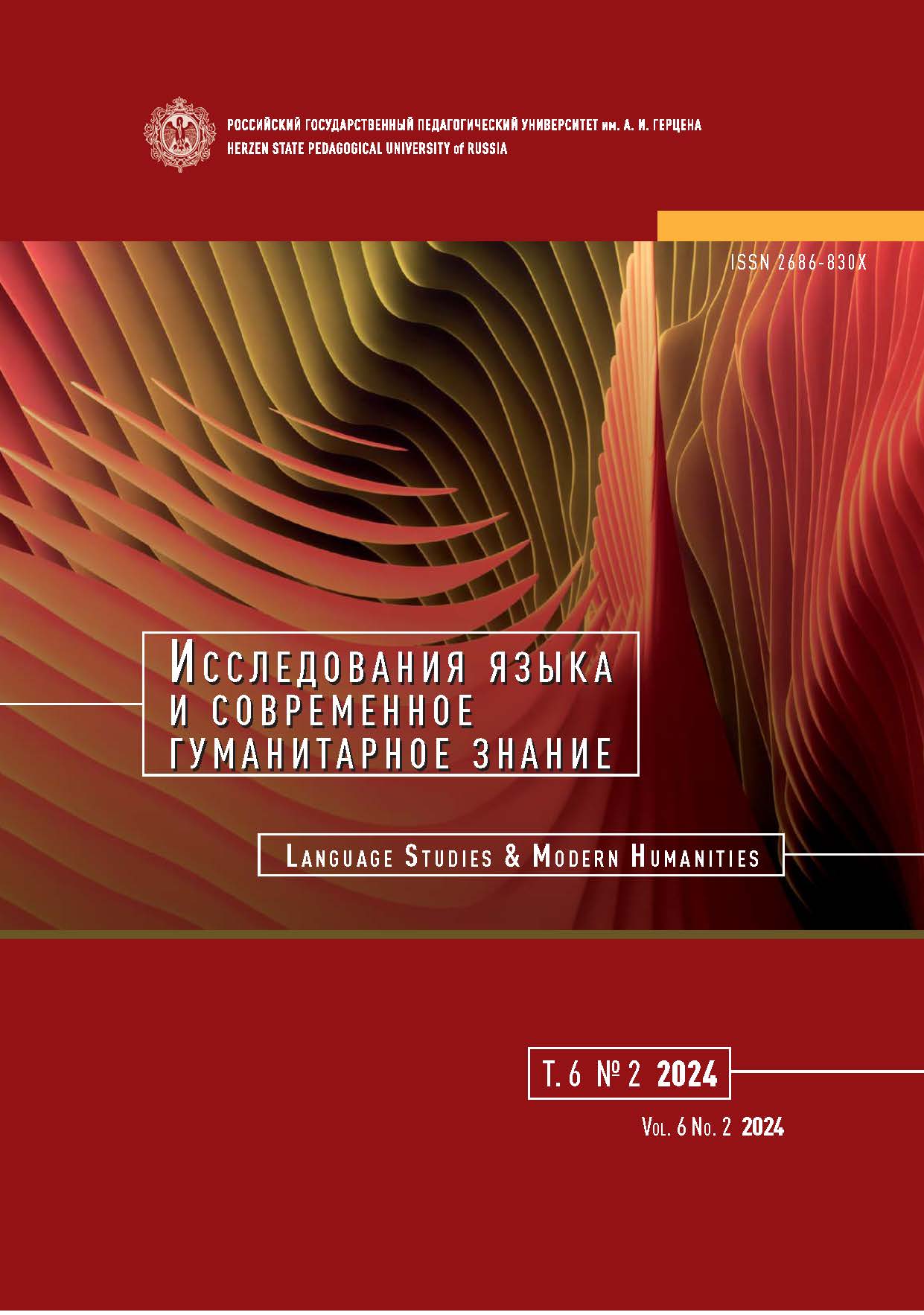The potential of task-based language teaching in developing university students’ soft skills
DOI:
https://doi.org/10.33910/2686-830X-2024-6-2-129-135Keywords:
task-based learning, soft skills, hard skills, form-based instruction, meaning-based instruction, target languageAbstract
The present article is concerned with the complexity of the development of university students’ soft skills. The terms “hard” and “soft” skills refer to a number of industry-specific and non-industry specific skills that are widely discussed in professional and academic settings and are enclosed in competence-based system of university education in the Russian Federation. The complexity of the matter is shaped by a number of linguistic and non-linguistic factors presented and discussed within the article. As supporting evidence the author provides theoretical implications from the field of Second language acquisition, instructed second language acquisition, neuro-linguistics as well as the results of the author’s own research. The findings regarding the way university students view language learning process and strategies they choose build the objective ground for the author to evaluate the benefits and drawbacks of naturalistic and synthetic language teaching approaches in regard with hard skills and soft skills’ development. The article suggests task-based language teaching and task-supported syllabus design as a potential solution to the contradictions and challenges outlined. The author then provides an example of a pedagogical task which can be built within a set university syllabus, supporting the suggestions made with description of the stages that the task can be broken into and rationale for each of them that would when put together guarantee university students’ soft skills development.
References
Almazova, A. A., Erokhina, E. L., Chertov, V. F., Sharonova, O. V. (2022) Klyuchevye aspekty formirovaniya “myagkikh navykov” u budushchikh pedagogov [Key aspects of the formation of “soft skills” in future teachers]. Nauka i shkola — Science and School, no. 6, pp. 259–268. https://doi.org/10.31862/1819-463X-2022-6-259-268 (In Russian)
Chevtaeva, N. G., Nikitina, A. S., Vishnevskaya, A. V. (2020) Kul’tura kommunikatsii prepodavatelya i studenta kak matritsa formirovaniya “soft skills” vypusknika [Communication culture as a matrix for graduate’s “soft skills” development]. Vysshee obrazovanie v Rossii — Higher Education in Russia, vol. 29, no. 12, pp. 33–44. https://doi.org/10.31992/0869-3617-2020-29-12-33-44 (In Russian)
Donovan, B. (2024) Soft skills. Britannica money. [Online]. Available at: https://www.britannica.com/money/soft-skills (accessed 13.04.2024). (In English)
Ellis, R., Shintani, N. (2014) Exploring language pedagogy through second language acquisition research. London: Routledge Publ., 400 p. https://doi.org/10.4324/9780203796580 (In English)
Kozyreva, L. D. (2021) Osnovnye trendy razvitiya soft skills [Main trends in the development of soft skills]. In: N. G. Skvortsov, R. V. Karapetyan (eds.). Transformatsiya truda v (de)globaliziruyushchemsya obshchestve: sbornik nauchnykh statej [Labor transformation in (de)globalizing society: Collection of scientific papers]. Saint Petersburg: Skifiya-print Publ., pp. 104–111. (In Russian)
Long, M. (2015) Second Language acquisition and task-based language teaching. Malden: Wiley-Blackwell Publ., 439 p. (In English)
McGrath, I. (2016) Materials evaluation and design for language teaching. 2nd ed. Edinburgh: Edinburgh University Press, 344 p. (In English)
Nunan, D. (1989) Designing tasks for the communicative classroom. Cambridge: Cambridge University Press, 211 p. (In English)
Paradis, M. (2004) A neurolinguistic theory of bilingualism. Amsterdam: John Benjamins Publ., 299 p. https://doi.org/10.1075/sibil.18 (In English)
Powell, A. A. (2023) Nedostatki modeli “PPP” dlya razvitiya umenij spontannoi rechi i vozmozhnye puti ikh preodoleniya v aspekte nejrolingvisticheskikh, psikhologicheskikh i metodicheskikh obosnovanij [Drawbacks of the “PPP” model for the development of spontaneous speech skills and possible ways to overcome them on the basis of neuro-linguistic, psychological and methodical justifications]. In: I. S. Volegzhanina (ed.). Nepreryvnoe professional’noe obrazovanie: teoriya i praktika. Materialy XII Mezhdunarodnoj nauchno-prakticheskoj konferentsii [Continuing professional education: Theory and practice. Proceeding of the XII International scientific and practical conference]. Novosibirsk: Siberian Transport University Publ., pp. 129–140. (In Russian)
Skehan, P. (1996) Second language acquisition research and task-based instruction. In: J. Willis, D. Willis (eds.). Challenge and change in language teaching. Oxford: Heinemann Publ., pp. 17–30. (In English)
Skills for social progress: The power of social and emotional skills. (2015) OECD Skills Studies. [Online]. Available at: https://www.oecd.org/en/publications/skills-for-social-progress_9789264226159-en.html (accessed 13.04.2024). (In English)
Thaine, C., Thornbury, S. (2020) Off the page. Activities to bring lessons alive and enhance learning. Cambridge: Cambridge University Press, 304 p. (In English)
Tomlison, B. (2016) Achieving a match between SLA theory and materials development. In: SLA research and materials development for language learning. New York: Routledge Publ., pp. 3–22. https://doi.org/10.4324/9781315749082 (In English)
Zimnyaya, I. A. (2009) Klyuchevye kompetentsii — novaya paradigma rezul’tata obrazovaniya [Key competences — a new paradigm of educational results]. Experiment i innovatsii v shkole, no. 2, pp. 7–14. (In Russian)
Downloads
Published
Issue
Section
License
Copyright (c) 2024 Anna A. Powell

This work is licensed under a Creative Commons Attribution-NonCommercial 4.0 International License.
The work is provided under the terms of the Public Offer and of Creative Commons public license Creative Commons Attribution 4.0 International (CC BY 4.0).
This license permits an unlimited number of users to copy and redistribute the material in any medium or format, and to remix, transform, and build upon the material for any purpose, including commercial use.
This license retains copyright for the authors but allows others to freely distribute, use, and adapt the work, on the mandatory condition that appropriate credit is given. Users must provide a correct link to the original publication in our journal, cite the authors' names, and indicate if any changes were made.
Copyright remains with the authors. The CC BY 4.0 license does not transfer rights to third parties but rather grants users prior permission for use, provided the attribution condition is met. Any use of the work will be governed by the terms of this license.







